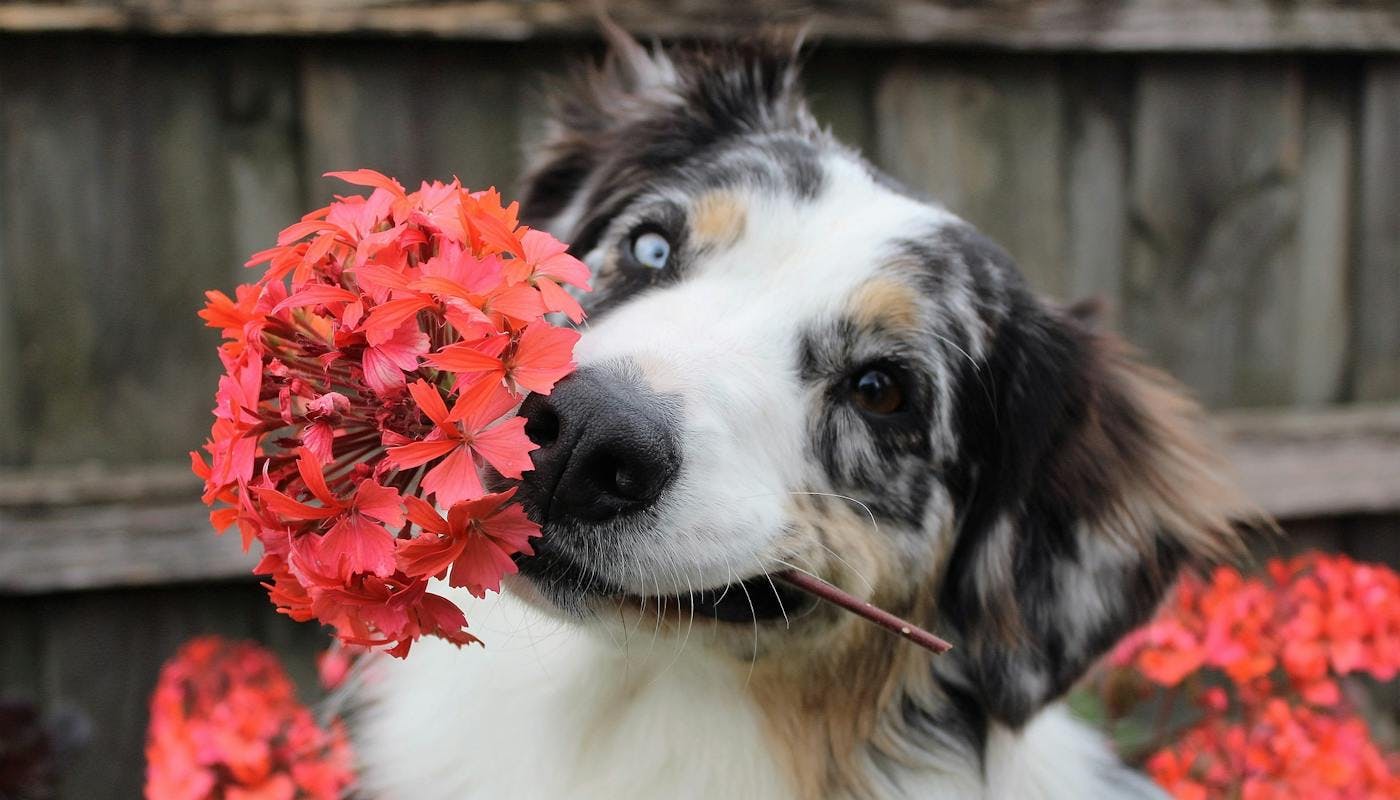Plants That Dogs Don’t Like
Whether you have a dog that loves to spend time outside, or your neighbor has an errant pet that’s always trying to get into your garden you might have wondered: are there any plants that dogs don’t like? And the answer is yes: there are some plants that will help keep dogs away from your flower beds.
But it’s important to be aware of the difference between dog-repellant plants, and plants that are toxic to dogs but might not repel them. After all, nobody wants to be responsible for dog poisoning.
In this article we will look at the best plants for keeping dogs at bay, and plants that dogs should hate… but don’t.
Plants That Can Safely Keep Dogs Away From Your Garden
Maybe you’re trying to stop your dog from peeing on your flower bed, chewing your blooms, or even entering your garden at all. The most important thing to know is the scents and plants that will keep dogs away, and the plants that won’t deter dogs but could poison them if they get too close or ingest them.
Due to their excellent sense of smell, dogs don’t love flowers in the same way that humans do. In fact, many plants and flowers smell far too pungent to dog noses, which can make them a good deterrent for keeping canines out of your yard.
These plants are safe for dogs, but will deter them from your garden as they dislike the smell:
- Marigolds or calendula
- Lavender
- Rosemary
- Rue
- Curry plant
- Lemongrass
- Pepper plants, and black pepper or cayenne sprinkled on the soil
- Citrus including grapefruit and orange (this could include placing peels in your flowerbeds, or using a lemon juice spray)
- Coffee grounds sprinkled on the soil
Avoiding Plants That Are Poisonous To Dogs
There is a huge list of plants, grasses, and flowers that are toxic to dogs and other animals to varying degrees. Many they will be unlikely to come into contact with. Others they will have no interest in. But some of these common garden plants are toxic to dogs, and should be avoided.
After all, dogs won’t always ‘know’ that a plant could do them harm. So using toxic plants to deter dogs is likely to be ineffective, and could incur you some pretty big vet bills – or worse. These are some common flowers that are toxic to dogs:
- Azalea
- Begonia
- Buttercup
- Carnations
- Chamomile
- Clematis
- Chrysanthemum
- Daffodils
- Dahlias
- Daisys
- Hydrangea
- Foxgloves
- Gardenias
- Holly
- Hyacinth
- Iris
- Ivy
- Periwinkle
- Philodendron
- Poinsettia
- Sweetpea
- Tulip
How To Keep Dogs Off My Garden
Despite the wide range of dog-deterring plants, filling your garden with blooms that pooches don’t like probably isn’t the best tactic for keeping them away – especially if you’re not so fond of those flowers either.
The best way to keep dogs away from your flower beds is simply to train them to spend their time elsewhere. So, if your dog loves to nap in the shade of your plants, or loves the feeling of soft soil underneath them, offer them other – better – places to nap in the shade or lie in the soil.
Praise them for spending time in these other areas of the garden instead and, if your dog is prone to digging, try creating a specific, fenced-off area that they’re allowed to dig to their heart’s content to keep them away from your seedlings.
Of course, if the dog you’re trying to keep out isn’t yours then training them or giving them a dedicated spot in your yard aren’t ideal solutions. Instead, you might want to try these other garden deterrents for dogs:
- A physical boundary like fences or chicken wire
- Raised flower beds
- Bamboo barriers
- Gravel, pine cones, and other decorations that will be uncomfortable under dog feet
- A motion-activated sprinkler – as long as you don’t live next to a busy road that frightened dogs could run into
- Vinegar-soaked rags – though these can kill some plants so be careful where you put them
Always avoid plants or other objects that can cause harm to pets, as you might be liable for any harm that comes to animals on your property – whether they should be there or not.
